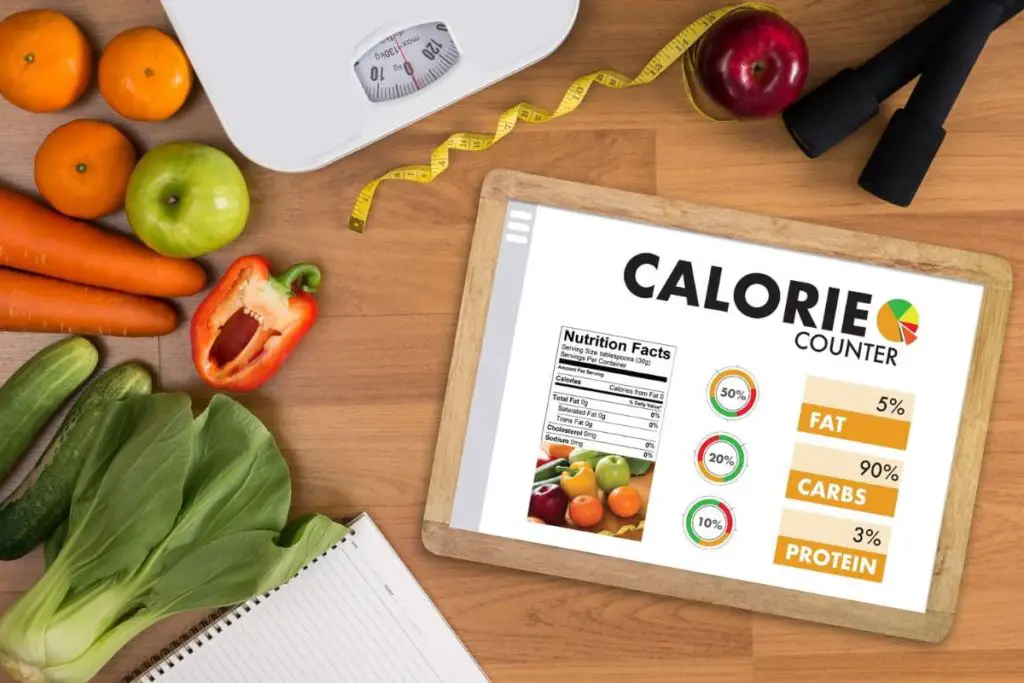Intermittent fasting is a popular lifestyle choice for people wishing to shed a significant amount of weight healthily. However, fasting is challenging because you must voluntarily avoid eating and drinking for a set period. So, is it okay to break intermittent fasting once a week?
It is okay to break intermittent fasting once a week to give your body adequate time for recovery. The break depends on the type of intermittent fasting you’re following, but you should consume a healthy diet and add some treats while tracking your calorie intake.
In the rest of the article, I’ll cover how many calories will break a fast and the best foods and drinks to consume. I’ll also explain some common mistakes people make when taking a break from intermittent fasting.

How Many Calories Will Break a Fast?
Taking anything other than water or zero-calorie beverages will break your fast.
For instance, if you’re following the popular 16:8 fasting method, you should only eat during the 8-hour eating window and completely fast for 16 hours straight.
Therefore, any calorie intake will break your fast. However, if you want to remain in a fasting state, you should only drink water or zero-calorie drinks like black coffee or green tea with no sugar or milk. In addition, you must completely abstain from eating any solid foods.
As stated earlier, it’s okay to break intermittent fasting once weekly. In the next section, I’ll explain what to eat to maximize the health benefits of fasting.
What To Eat When Breaking a Fast
You need to be mindful of what you eat during and after breaking your fast to avoid spiking your insulin levels, which are responsible for converting stored fat into an energy source.
The following are some meals and drinks you can consume after breaking your fast:
- Water. You can drink water at any time during and after intermittent fasting since it contains zero calories, meaning it won’t interfere with your fasting. Drinking water keeps your body hydrated and eliminates harmful toxins.
- Black coffee or green tea. Consuming black coffee or green tea without sugar, milk, or cream won’t affect your fasting benefits since they don’t contain calories. According to a study, the caffeine in coffee or tea boosts the body’s metabolism and helps burn excess fat.
- Apple cider vinegar. Drinking diluted apple cider vinegar helps you control cravings before and after breaking your fast. You only need to add two teaspoons (10 ml) of apple cider vinegar to a glass of water, stir, and drink to regulate blood sugar.
- Bone broth. You can prepare and consume a vegetable bone broth to replenish any lost nutrients and electrolytes. A soft and light meal like bone broth is gentle to the digestive system after long hours of fasting.
- Lean protein and healthy fats. Adding lean protein and healthy fats sources after breaking a fast is a great way to introduce food into your digestive system. Start by eating small portions of eggs or avocado to control hunger without overwhelming your digestive tract.
5 Common Mistakes People Make When Breaking a Fast
Even though intermittent fasting allows you to eat all types of foods, you should eat healthy meals in smaller portions to help your body stay in a calorie deficit and burn excess body fat.
The only exception is water because you can drink as much as you want without reducing the overall fasting benefits.
That said, let’s get you started with five common mistakes people make when breaking a fast:
Starting Without the Right Fasting Plan
You’ll mess up your breaking window if you start intermittently fasting (IF) with a plan that doesn’t fit your daily schedule or lifestyle. It’s recommended to start gradually with an IF plan that you can maintain over the long run.

The following are two popular intermittent fasting plans:
- 5:2 Fasting Plan. This involves five days of normal eating followed by two days where you only consume between 500–600 calories.
- 16:8 Fasting Plan. With this plan, you fast for 16 hours every day, followed by an 8-hour eating window in which you should eat nutritious meals.
Choose a fasting plan that allows you to break your fast by eating soft meals and drinks on the first day or after a few hours. It should allow you to gradually add hard foods afterward to prevent digestive issues like indigestion and bloating.
Eating the Wrong Foods
After breaking your fast, you must eat nutritious whole foods, such as lean proteins, healthy fats, vegetables, and fruits.
Don’t overeat unhealthy processed foods and drink carbonated or sugary drinks because they may reverse the intermittent fasting benefits. A good strategy entails cooking your food and eating smaller portions after breaking your fast.
Not Drinking Enough Water
The best approach to avoid overeating because of hunger is to drink enough water before and after breaking a fast. You should drink water throughout your fasting period to avoid health risks like dehydration, headaches, and energy loss.
We occasionally tend to confuse thirst and hunger. So, stay hydrated by drinking lots of water to help keep yourself full until your next meal. You can also take black coffee or tea without milk or sugar.
Too Much Restriction on Calories
The last thing you want to do is to restrict your food intake and consume as few calories as possible. When you enter starvation mode, your body will start using the stored energy in your muscles as fuel, resulting in a loss of significant muscle mass over time.
Therefore, eat a healthy balanced diet and keep track of your calories to ensure you’re meeting your maintenance calories after breaking a fast.

Not Exercising Regularly
You need all the distractions you can get to avoid unplanned eating or snacking whenever you feel hungry. The good news is that you can achieve this by exercising regularly, which will also help burn the excess calories for speedy weight loss.
However, you should consult your doctor before attempting any vigorous exercise, especially if you have an underlying medical condition like diabetes or low blood pressure.
Conclusion
It’s important to understand that intermittent fasting is not a quick fix and takes time before you can achieve the weight loss and health benefits you desire. So, consume the right meals or drinks and avoid the above common mistakes after breaking a fast.
Fortunately, you can break intermittent fasting at least once a week for recovery reasons. However, you should watch what you eat to prevent undoing the positive health benefits.

